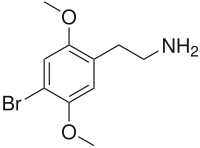
Photo from wikipedia
Secondary findings (SFs) identified through genomic sequencing (GS) can offer a wide range of health benefits to patients. Resource and capacity constraints pose a challenge to their clinical management; therefore,… Click to show full abstract
Secondary findings (SFs) identified through genomic sequencing (GS) can offer a wide range of health benefits to patients. Resource and capacity constraints pose a challenge to their clinical management; therefore, clinical workflows are needed to optimise the health benefits of SFs. In this paper, we describe a model we created for the return and referral of all clinically significant SFs, beyond medically actionable results, from GS. As part of a randomised controlled trial evaluating the outcomes and costs of disclosing all clinically significant SFs from GS, we consulted genetics and primary care experts to determine a feasible workflow to manage SFs. Consensus was sought to determine appropriate clinical recommendations for each category of SF and which clinician specialist would provide follow-up care. We developed a communication and referral plan for each category of SFs. This involved referrals to specialised clinics, such as an Adult Genetics clinic, for highly penetrant medically actionable findings. Common and non-urgent SFs, such as pharmacogenomics and carrier status results for non-family planning participants, were directed back to the family physician (FP). SF results and recommendations were communicated directly to participants to respect autonomy and to their FPs to support follow-up of SFs. We describe a model for the return and referral of all clinically significant SFs to facilitate the utility of GS and promote the health benefits of SFs. This may serve as a model for others returning GS results transitioning participants from research to clinical settings.
Journal Title: Journal of Medical Genetics
Year Published: 2023
Link to full text (if available)
Share on Social Media: Sign Up to like & get
recommendations!